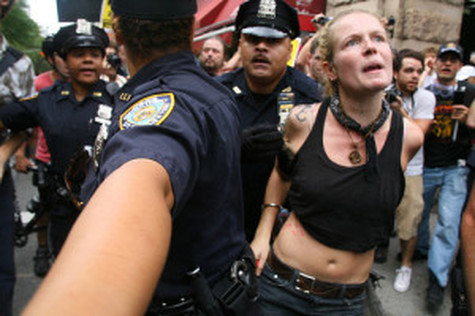|
Last week, the Washington Supreme Court ruled in the case of Washington v. E.J.J. that a juvenile’s conviction for obstruction was unconstitutional because it had infringed upon his First Amendment freedom of speech. In Washington State, the law is now clear that words alone, no matter how socially uncomfortable, cannot form the basis of an obstruction conviction.
Of course, words that are threatening or words that present a clear and present danger are still not protected by the First Amendment. The facts of the case On the night of February 14, 2011, E.J.J.’s mother, Geraldine, called 911 for help to get her daughter (E.J.J.’s sister) to leave her King County home. The daughter, a minor, was heavily intoxicated and agitated. E.J.J., also a minor, lives with his mother and was at home when she called 911. Officer Sean Jenkins and two other police officers responded to the call and escorted the daughter out of the home. As the officers talked with his sister in the yard, E.J.J. stepped off the porch and approached them. The officers had calmed his sister down, but when the boy began speaking in a loud and excited voice, she became agitated. The officers asked E.J.J. several times to go back inside the house and to shut the door, warning him that he was obstructing their investigation and could be arrested, but he refused. Officer Jenkins ultimately walked E.J.J. to the front door, instructing him to go inside and close the door as E.J.J. yelled and swore. He refused to close the front door because he wanted to supervise the scene and to make sure that his sister was not harmed during her interaction with the officers. The officers arrested E.J.J. and he was prosecuted for obstruction. As a minor, he was not entitled to a jury trial and was instead brought before a juvenile court judge, who found him guilty. The controversy For years many people have been calling 'obstruction' and 'resisting arrest' statutes a ploy that officers use when they feel either disrespected or vulnerable to an 'unreasonable use of force' lawsuit. It practically goes without saying that these statutes disparately impact African-Americans. Along with archaic drug laws, obstruction statutes have been used to disproportionately incarcerate African-Americans and trap them in a criminal justice system that does not offer sufficient rehabilitative or reentry resources. However, the Washington Supreme Court has now made it clear that there must be conduct on the part of the defendant (other than speech) in order to maintain an obstruction charge. The Court's decision Because it is virtually impossible to determine when an arrest involving both conduct and words is actually motivated by words, the Court overturned E.J.J.'s conviction. Concurrent opinions by Chief Justice Barbara Madsen and Associate Justice Steve González illustrate the impact of Washington’s obstruction statute on African-Americans. According to a report by the Office of Professional Accountability, 51% of the obstruction charges filed in Seattle between 2006 and 2008 were against African-Americans, who comprise only 8% of Seattle’s population. Chief Justice Madsen would add a new element to the obstruction analysis: where the officer’s conduct substantially contributed to the escalation of the circumstances that resulted in the arrest, the state has failed to meet its burden to show that the defendant willfully hindered, delayed, or obstructed a law enforcement officer in the discharge of his or her official powers or duties. If you would like to learn more about your rights or believe that you have been discriminated against please visit the Civil Rights Justice Center located at 2150 N. 107th Street in Seattle Washington or visit our website at civilrightsjusticecenter.com
1 Comment
|


